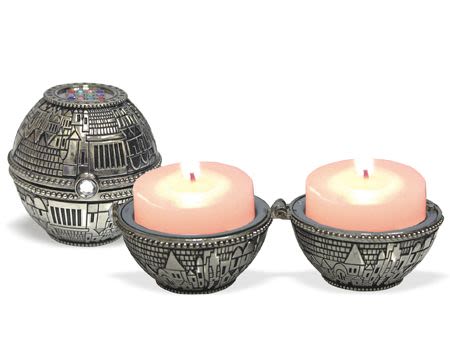
Wild Raspberries
A person who looks at a flower or a tree without understanding its divine message is like a tourist in China who can't understand the road signs...

A person who looks at a flower or a tree without understanding its divine message is like a tourist in China who can't understand the road signs.
We now begin the third stage of our journey. This chapter is the first of two chapters that will help us make peace with God. Later, we'll learn how to make peace with our fellow man, and most important of all, with ourselves.
Angry people often have a lengthy list of grievances with God. They feel that the Almighty treats them unfairly, or causes them to suffer unnecessarily. As such, they carry a burden of bitterness in their hearts. Bitterness is a serious obstacle on anyone's trail to tranquility.
The objective of the next two chapters is to uproot that bitterness. We'll examine why people experience painful situations in life. Once you understand how everything that happens in your life is for your ultimate benefit, you'll be ready to make complete peace with God. Although a mortal can't possibly understand Divine reason, the more you make an effort to observe The Almighty's way of running the world, the more you'll sense His limitless compassion, concern, and love for you. Such sensing is none other than spiritual awareness.
This chapter observes the difficulties in life that are gifts from heaven, designed for personal growth.
Every mineral, plant, animal, and human has a certain special quality that teaches us something about The Creator. Just as an artist signs his painting with his own unique signature, we can find God's signature on every creation in the universe.
Rebbe Nachman of Breslev teaches that the uniqueness of a given being is the sign of the divine wisdom instilled in that being.
Take the beaver, for example. Notice its tail; no other creature on earth has such an appendage. No other animal can build a dam like a beaver can. The beaver in general, and his tail in particular, are the result of an enormous amount of Divine engineering. When we observe a beaver, we learn quite a bit about the Creator. The beaver has nothing but positive qualities – he's constructive, diligent, and fiercely loyal to his family.
Practice thinking about the divine wisdom in other creations; it's a wonderful mental exercise that enhances spiritual awareness.
Did you know that the eye of a bee consists of hundreds of miniscule lenses, more sophisticated than any of the cameras in the space and satellite program? All the design engineers of all the major camera and lenses manufacturers can't reproduce the eye of a bee or a housefly. Divine engineering is a tough act to follow.
The Almighty communicates with us by way of the creations in our environment. The more we gain spiritual awareness, the more we understand God's messages. A person who looks at a flower or a tree without understanding its divine message is like a tourist in China who can't understand the road signs.
Wild Raspberries and Mountain Roses
Today, Old Isaac is taking you on an allegorical hike up Mount Patience. You'll be hiking along a breathtaking stretch of mountain forest. This particular leg on your journey is about to teach a very special lesson.
After you traverse Lupine Valley to the east, you cross over a creek. Up ahead is a noble forest of Loblolly pine, poplar, and wild oak. To the right is a thicket of thorny vines. Isaac removes his backpack, pulls out a paper plate, and then high-steps his way into the thicket. You're in for a pleasant surprise.
You have a puzzled look on your face; what's the old man find so special about a clump of stickers?
After a few minutes of clomping amongst the thorns, Isaac returns to the trail. You look at his hands and gasp; they're scratched and bleeding as if he hand-fed a clan of irate cats. You can't understand why he has such a big grin on his face, like a little tike that's just robbed the cookie jar.
When was the last time you ate fresh mountain wild raspberries? Isaac withdraws his canteen from its pouch on his hiking belt, washes off the berries, and checks them for worms. He passes you the plate of the shiny bluish-black berries, which look like miniature grape clusters. "This is a present for you, cherished friend," he says. "Enjoy the sweetness of our beautiful world."
Your eyes roll in delight; you can't remember when you tasted such a delicacy.
I learned in survival school that the nutritionally rich wild raspberries can sustain a stranded hiker for several days if need be.
Isaac takes you up the trail for another half mile, and stops again. He makes another quick excursion into the woods, and returns with two of the most beautiful roses you've ever seen. This time, he has a six-inch scratch that broke the skin on his forearm. "A little souvenir from Mount Patience," he smiles, and presents the roses to you.
You're thrilled with the flowers. Their fragrance surpasses the best of French perfumes. You've seen roses before, but these multicolored gold and crimson beauties surpass anything you've ever seen in a florist shop. Old Isaac knows how to make a person feel special.
You continue up the trail. Every few paces, you take a deep, pleasurable sniff of your mountain souvenir. You ponder the mountain roses, their sunset-colored petals, the five elegant dark green leaves that surround each flower like a goblet, and the threatening razor-sharp thorns on their stems.
I'll bet that you're beginning to understand the connection between wild raspberries, mountain roses, and the scratches on Isaac's hands and arms.
Isaac explains: "The sweet berries and the lovely flowers are gifts from God. An expensive gift usually has a high price tag. In the outback, we don't pay with traveler's checks or credit cards; in the case of the berries and the roses, we have to suffer a little pain in order to attain the prize."
Isaac doesn't complain about the thorns scratching his hands. On the contrary, he wears a big smile.
"Picking the berries and the roses was well worth a few scratches," Isaac says. "Knowing the reward of the pain – in this case, granting a pleasurable experience to a close friend – is the spiritual awareness that prevented me from being angry at the thorns. You can't pick wild raspberries or mountain roses without getting scratched."
Let's take Old Isaac's idea one step further: Suppose you got scratched or bruised on your way up the trail, without finding wild raspberries or mountain roses. Would you be angry at the thorns, or at the rock that you tripped over? Once you've succeeded in developing spiritual awareness, the answer is no. Sometimes, the buried treasure within a painful experience is not as obvious as a wild raspberry or a mountain rose, but that doesn't mean that it's not there. If we look hard enough, we're bound to find the reward.
"Within every sorrow hides a salvation." — Rebbe Nachman of Breslev
The hidden blessings within every tribulation resemble wild raspberries and mountain roses: They're usually not apparent at first glance, even though the thorns – our troubles – are always obvious.
Don't let a thorn or two in life discourage you. Your reward is on the way. There are seasons in the year when you don't see fruit on the prickly vines – that doesn't mean they're not wild raspberries. Be patient, and when the time is right, you'll find an abundance of sweet fruit. The same holds true of the thorny times in life; at the time of a painful experience, we don't always know what God is doing to us, but rest assured, the ultimate outcome is always for the best.
Since the dawn of humanity, people have been asking the same question: "If God loves me so much, than why does He make me suffer?" Let's examine the difference between a person who understands why he suffers and a person who doesn't understand, in the following example:
Peter and Paul share the same room in a hospital. They're surprising similar – same age, same physical characteristics, and they both have nine stitches in the exact same place below the abdomen. Yet, Peter is bright and cheerful and Paul is depressed and bitterly angry with The Almighty. Why the difference between the two?
Peter had an emergency appendectomy. After the operation, the surgeon told him how fortunate he was; his swollen and infected appendix was a minute away from bursting, and if that were the case, a massive flow of toxins would have contaminated Peter's bloodstream and threatened his life. Peter is tickled by his good fortune – a new lease on life and a few days of forced vacation to relax and catch up on his reading – all for the bargain-basement price of nine stitches and a bearable measure of abdominal pain.
On a pain scanner, Paul's pain level would score identically to Peter's. Paul though, is trapped in a thick cloud of gloom. While walking through the park, three thugs pounced on him, stole his wallet, and stabbed him in the abdomen.
Peter knows why he's suffering, while Paul doesn't. Peter's knowledge is none other spiritual awareness, which makes the difference between happiness and sadness, between inner peace and inner turbulence.
Imagine that an angel from heaven visits Paul in the hospital, and explains all the reasons behind the mugging. Were Paul to realize that his traumatic experience was no less a gift from God than Peter's appendicitis, he would be smiling too.
The seemingly bad times in our lives are very special gifts from God, usually intended for very special people.
Life's difficulties are not the result of negative conduct or actions. The overall purpose of the seemingly bad is to spiritually strengthen a person and to bring him closer to God. Our loving Father in Heaven doesn't want His children to stray away, nor does He want them to succumb to spiritual hibernation. The thorns and briars in our lives wake us up and keep us spiritually on our toes. God utilizes various types of tribulations and trying times to conceal a number of very special gifts, as we will see throughout this chapter.
The more we understand that the thorny times of our lives are divine gifts, the more we love the Divine Giver, and the more thoroughly we uproot the spiritually-destructive latent anger that sometimes penetrates our hearts.
To be continued…













Tell us what you think!
Thank you for your comment!
It will be published after approval by the Editor.